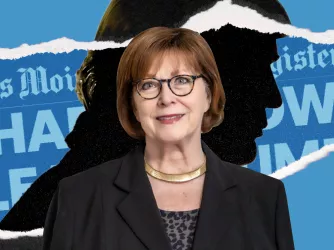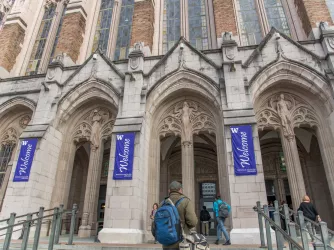Table of Contents
Victory for Free Speech: Clemson University Abandons 'Free Speech Zone' Policy
CLEMSON, S.C., November 28, 2006—Clemson University has vowed to review its “free speech zone” policy and, until a new policy is instituted, has opened its entire campus to free speech. Clemson has also cleared the Clemson Conservatives student organization of its charges for violating the “free speech zone” policy. Clemson decided to reassess its restrictions on free assembly after the Foundation for Individual Rights in Education (FIRE), working with the Clemson Conservatives, contended that the university’s “free speech zones” were both unlawful and immoral.
“We are extremely pleased that Clemson has realized that its policies restricting free assembly were out of step with students’ free speech rights,” FIRE President Greg Lukianoff said. “We hope that other universities will realize that free speech should be celebrated, not quarantined, on campus.”
Prior to this month, Clemson subjected its students to a Sales and Solicitation Policy that designated only two areas on Clemson’s vast campus for students to assemble. Even within the designated areas, students had to gain the permission of three different administrative offices 72 hours in advance of the planned event, making spontaneous demonstrations impossible.
In late October, the Clemson Conservatives attempted to register a protest of the Clemson Gay-Straight Alliance’s gay marriage advocacy outside of the Daniel Auditorium, where the Alliance was set to meet. Since that area was outside one of the “free speech zones,” Clemson denied the request. The Clemson Conservatives held the protest nonetheless, and while the Clemson University Police Department did not interrupt the protest, police officers were present to videotape it.
On November 9, the university’s Office of Judicial Conduct found the Clemson Conservatives guilty of holding a protest in a “non-designated area” and sentenced the group to an “admonition” and “censure,” with the warning that further transgressions of the Sales and Solicitation Policy could result in suspension.
The Clemson Conservatives appealed to FIRE for help and on November 13, FIRE wrote a letter to Clemson President James F. Barker to inform him that Clemson’s restrictions on free assembly violate both the U.S. Constitution and Clemson’s own policies, including the Sales and Solicitation Policy, which states that “nothing in this policy or its regulations is intended to infringe upon any constitutional or other legal rights regarding freedom of speech.” FIRE has not yet received a response to that letter.
However, on November 16, Dean of Students Gail DiSabatino issued an e-mail stating that Clemson “has begun the process of reviewing and considering revisions to [the Sales and Solicitation] policy as well as other related policies.” She went on to say that during the period of review, students “may assemble, protest or demonstrate on campus as long as they do not disrupt the normal or previously scheduled activities of the University.” Further, on November 17, DiSabatino sent Clemson Conservatives Chairman Andrew Davis a letter notifying him that since the university is reviewing the “free speech zone” policy, DiSabatino is “removing the admonition and censure sanctions placed on Clemson Conservatives and directing the Office of Student Conduct to destroy the file related to this discipline case.”
“So-called free speech zones are an odd and highly inappropriate part of too many campuses’ policies these days,” FIRE Director of Legal and Public Advocacy Samantha Harris said. “We will be watching to make sure that Clemson follows through on its promise to institute a permanent policy by next year that opens the entire Clemson campus to free expression.”
FIRE has had success in fighting “free speech zones” at West Virginia University, Texas Tech, Citrus College, the University of Nevada at Reno, and the University of North Carolina–Greensboro. FIRE will continue to fight the trend of confining free speech to small areas of campus that persists at many other colleges and universities.
FIRE is a nonprofit educational foundation that unites civil rights and civil liberties leaders, scholars, journalists, and public intellectuals from across the political and ideological spectrum on behalf of individual rights, due process, freedom of expression, academic freedom, and rights of conscience at our nation’s colleges and universities. FIRE’s efforts to preserve liberty at Clemson University can be viewed at thefire.org/clemson.
CONTACT:
Greg Lukianoff, President, FIRE: 215-717-3473; greg_lukianoff@thefire.org
James F. Barker, President, Clemson University: 864-656-3413; jbarker@clemson.edu
Recent Articles
FIRE’s award-winning Newsdesk covers the free speech news you need to stay informed.

FIRE’s defense of pollster J. Ann Selzer against Donald Trump’s lawsuit is First Amendment 101
A polling miss isn’t ‘consumer fraud’ or ‘election interference’ — it’s just a prediction and is protected by the First Amendment.

China’s censorship goes global — from secret police stations to video games
2025 is off to a repressive start, from secret police stations in New York to persecution in Russia, Kenya, and more.

High schoolers: Become a voice for tomorrow, today!
Join FIRE’s Free Speech Forum this summer at American University in Washington, D.C. from June 22-28.

University of Washington alumni seek to revive the spirit of free inquiry
Two alumni of the University of Washington have formed the Husky Alumni for Academic Excellence to support free speech on campus.